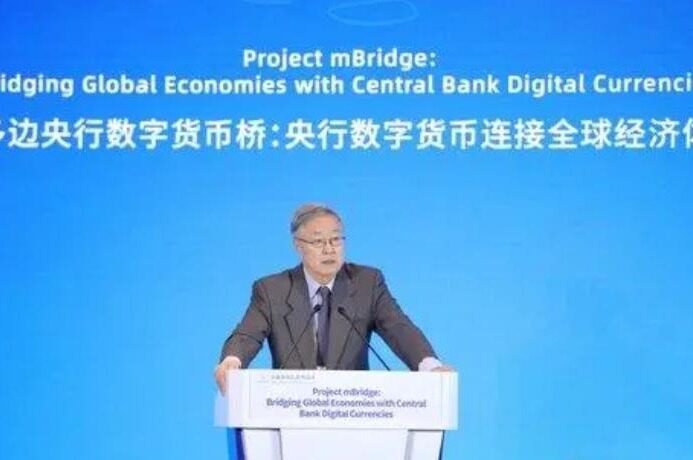Project mBridge — a cross-border platform for experimenting with central bank digital currencies for international trade — does not exclude the use of the dollar and will focus on facilitating payments for small-amount current account transactions, said a former Chinese central bank governor.
Citing the views that mBridge may harm both the reputation and usage of the US dollar, Zhou Xiaochuan, vice-chairman of Boao Forum for Asia and a former governor of the People”s Bank of China, said that mBridge, in fact, is primarily aimed at filling in the vacancies in the international payment system.
Project mBridge is not exclusive in using the US dollar, Zhou said, adding that relevant developments would depend on efficiency, cost, security and user choice.
He made these remarks at a Financial Street Forum event titled “Project mBridge: Bridging Global Economies with Central Bank Digital Currencies” on Wednesday.
“Whether the US dollar may maintain as a reserve currency and an international trade settlement currency is very much on the US government itself,” Zhou said, citing the key policy choices facing the US government of whether to use the dollar as a sanctioning tool and whether to provide enough dollar liquidity in Asia and other regions.
Traditionally, the US dollar and other “hard currencies” have been mainly used in cross-border payments, which cannot fully satisfy the demand in Asia in recent years amid the region’s fast development of interconnections, giving rise to the growth of mBridge and other platforms to facilitate cross-border payments within the region, according to Zhou.
Demand is the foremost driving force of mBridge, Zhou said, underlining the large cooperation scope among Asian economies, particularly in the ASEAN economies, China and the Gulf states.
Zhou said that mBridge should first facilitate the payments and settlements of current account transactions, especially small-amount ones. This aligns well with the demand of Asian economies in terms of economic, trade and travel development.
Mentioning opinions that mBridge might have a substitutional relationship with financial telecommunication infrastructure Swift, Zhou said he deems mBridge more as a cross-border payment system.
Payment systems could still rely on financial telecommunication systems, Zhou said, though small-amount transactions like cross-border internet shopping have introduced new requirements for simplified information exchanges.
“We appreciate very much Swift providing the communication facility globally and actually successfully promoted the international connection and trade for many years,” Zhou said, expressing hopes that Swift can maintain neutrality in business and governance and provide continuous, outstanding services for interbank communication.
















